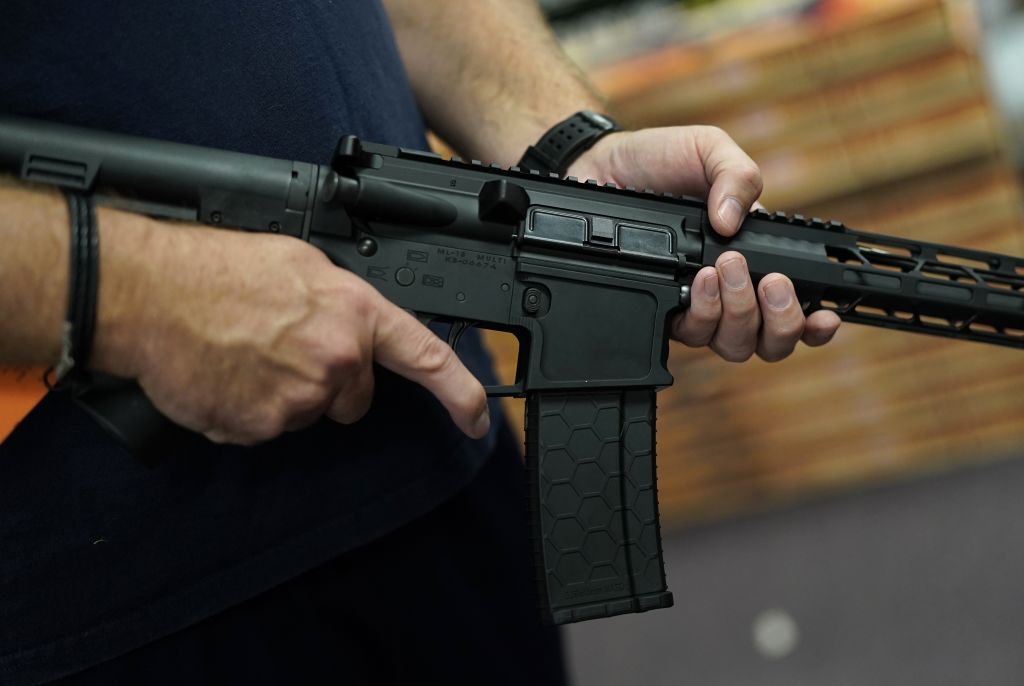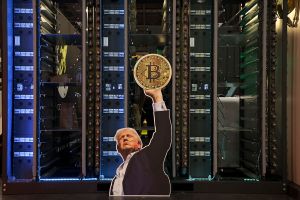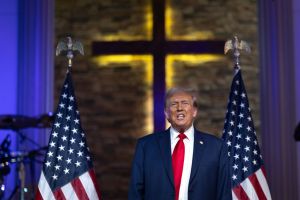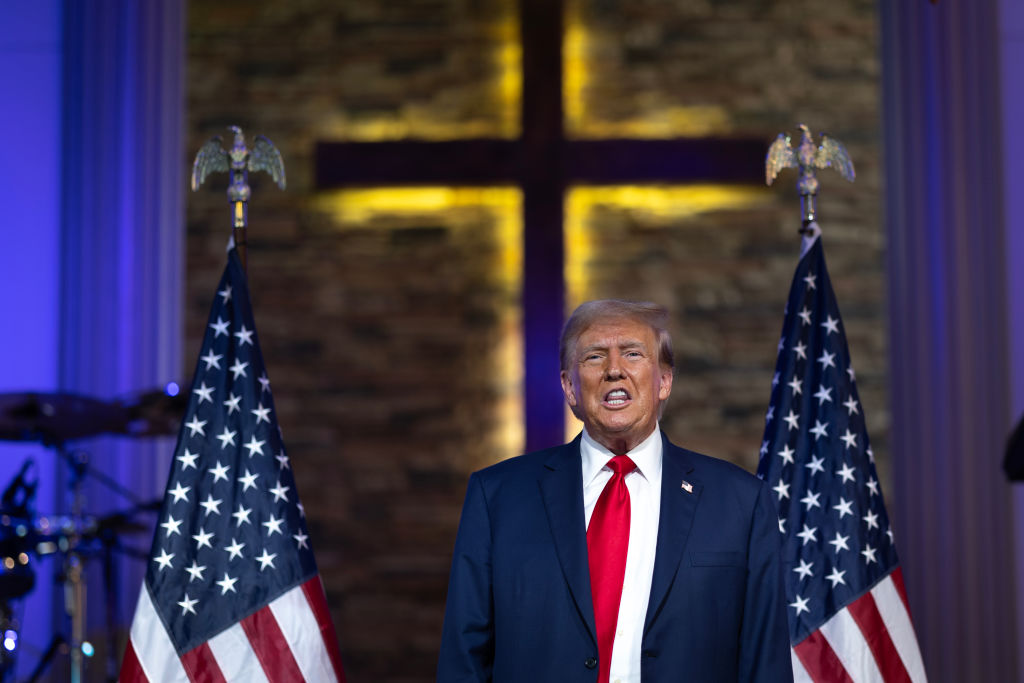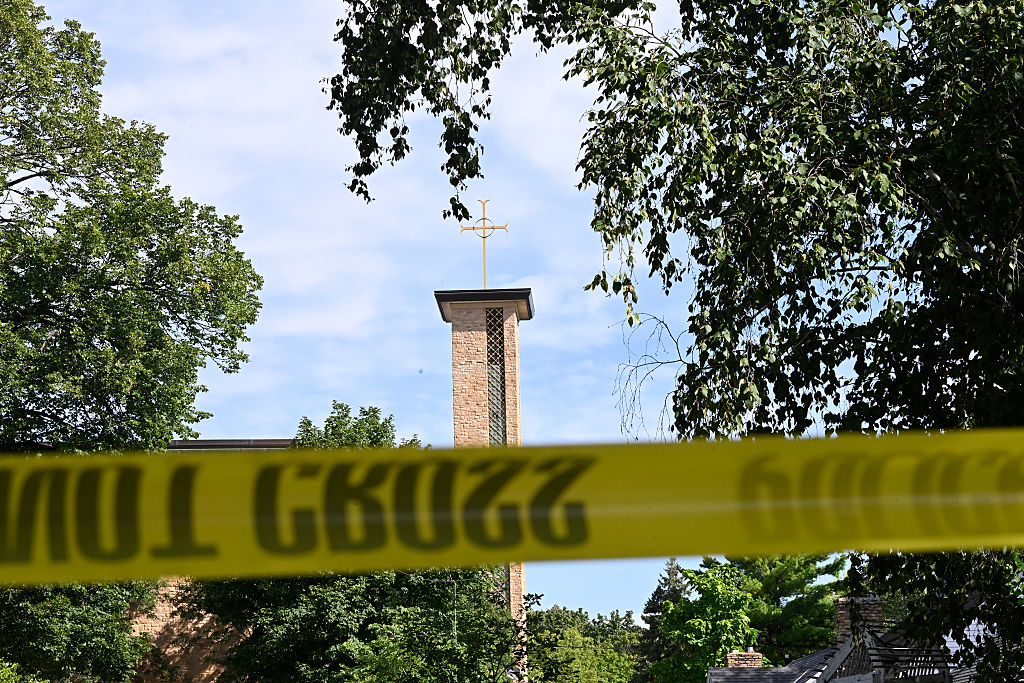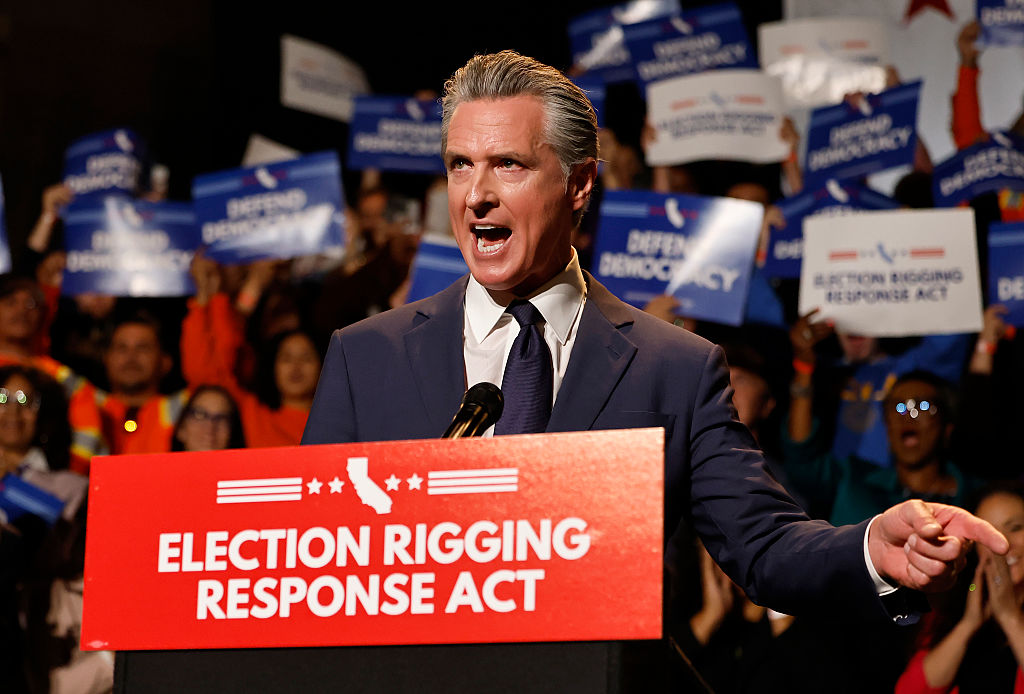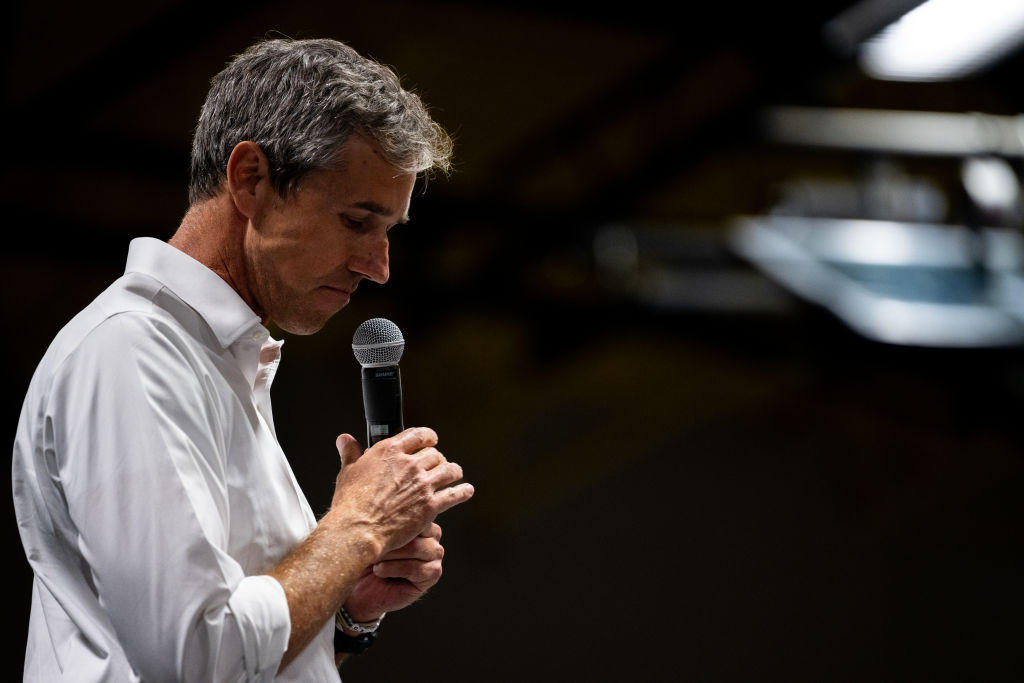I pulled into the Walmart parking lot a little after midnight. Apart from the black Chevy Tahoe I was there to rendezvous with, it was almost empty. The driver, who I only knew as SouthernSigFan7 from the Texas gun forum we both frequent, was standing to the side of the SUV with a smartphone in one hand and a gun case in the other.
The AR-15 I was about to buy from him was in that case. I could see he was getting his crypto wallet ready to receive the $2,000 in cryptocurrency I was about to send him to pay for the rifle. This sounds super shady — two total strangers meeting anonymously in a parking lot to exchange crypto for guns — but it’s actually far superior to the old instant background check system it replaced.
Thanks to the miracle of the blockchain, this complete stranger was about to cryptographically prove to me that he was the legal, fully qualified and vetted owner of this gun, without ever revealing his identity to me. For my part, I was about to cryptographically prove to him that I had both passed a federal background check in the past five years and had not only met but far exceeded the baseline gun safety qualifications for possessing an AR-15, all without revealing my identity to him.
He got his phone out and showed me the QR code that represented his unique account (or “wallet”) on the blockchain. I scanned the code with my phone camera — and an app on my phone went directly to the corresponding address on the blockchain so I could review its contents. I scrolled through the on-chain badges issued by the many classes and events he’d attended — looks like we were both at SHOT Show 2030! — until I got to what I really needed: the non-fungible token corresponding to the AR-15 he was selling me. He opened the gun case and showed me the serial number on the side of the AR-15. I verified that it matched the number on the NFT in his wallet that he was about to transfer to my own wallet.
Like me, SouthernSigFan7 probably had dozens of such on-chain wallets, all untraceable to him by even the most sophisticated federal authorities, but the wallet I had just looked at would be the one where he stored the special, on-chain credentials — a proof-of-age token from an age verification service, a gun safety class diploma and a background check token like my own — that attested to the achievements and credentials that qualified him to possess this gun.
Everything appeared to be in order, so I approved the exchange. This included signing a series of transactions that would use smart contracts to transfer $2,000 worth of crypto from my wallet to his, and would then transfer the unique token that represented ownership of this specific AR-15 from his wallet to mine. Success! The federal gun exchange smart contract had checked my wallet’s credentials and approved the transfer. I was now the legal owner of the AR-15.
We went our separate ways, and never saw each other again after the sale. Not only did we never learn anything about each other than our forum handles and whatever we could glean from small talk at our brief midnight meeting, but no one anywhere in the world would or even could ever learn who we were. The transactions that exchanged my crypto for his AR-15 NFT would be forever burned into the public blockchain, but no one would have any way of uncovering the real-world identities of the owners of the two wallets involved. Nonetheless, it would be clear to anyone who looked at this publicly available data that both wallets contained all the necessary credentials to possess and exchange this gun.
I once had a gun sale where a really sketchy, nervous-looking guy showed up to meet me in a parking lot and offered to buy my Glock 21 at double the asking price if I would skip the NFT transfer. He was trying to commit a felony by driving off with the gun but not the NFT.
So I let him do it. Hey, it wasn’t illegal for me to sell it to him without the NFT, because such a law couldn’t even be enforced given that there’s no way anyone could tie that Glock to my real identity (only to my pseudonymous crypto wallet).
I took the guy’s crypto, and as he drove off with the gun I called his license plate in to the cops and told them what had just happened. He was arrested before he got a mile up the road. The next day, I went into the police station, showed the cops my wallet containing the NFT for the Glock, and walked out with my pistol and a big thank-you from the police for getting a criminal off the streets. Oh, and of course I kept the newly minted felon’s crypto as a sort of public service bounty. He wouldn’t be able to spend it in prison, anyway.
***
The story above is fictional, but it depicts a future that’s possible with blockchain technology that’s in use right now. NFTs may currently be the butt of media jokes, but they’re already being used in exactly the manner I’ve described — to verify credentials and qualifications, and control access to digital resources and physical goods. This technology could be used to vet gun ownership and possession while preserving complete privacy and anonymity for gun owners.
If you’re familiar with NFTs, it’s probably because you read a story about a cartoon picture of an ape selling for millions of dollars. These unique tokens, written to the public blockchain and tradable like digital Beanie Babies, have been used to make a number of things so far — the aforementioned ape image collections, proofs of attendance, digital passes for entering certain chat rooms, Ponzi schemes, etc.
An NFT is nothing more than a small digital file that can be moved from one address on the blockchain to another (or locked to a specific address), so it has a lot of flexibility in what kinds of real-world things it can represent. The co-founder of the Ethereum blockchain has recently discussed putting college diplomas and other kinds of earned credentials and social attestations on the blockchain via these tokens, so it’s certainly possible for the kinds of third-party identity verification and background check services that we already use for airport security to “mint” NFTs to your crypto wallet that prove that you, the holder, have specific qualifications and characteristics.
As in my story, NFTs might allow us to simplify the huge mess of federal gun regulations and feature bans down to a few simple rules:
- Whoever has the NFT owns the gun
- Whoever possesses the gun (“possession” being a well defined legal concept) must also own the NFT. If you ever get caught with the gun but not the NFT that corresponds to it, you go to federal prison
- Prohibited persons (felons, mostly) are barred from possessing a gun regardless of what NFTs they own
There would be other wrinkles and twists, but really those three simple rules could constitute the bulk of federal gun law. The rest of the rules around gun ownership could be embodied in a set of congressionally written and periodically updated blockchain-based smart contracts that set the rules for what credentials are required for a wallet to take delivery of a specific kind of firearm NFT.
A smart contract is a computer program that runs on the blockchain. In the story, my pseudonymous parking lot gun dealer and I use a federally maintained gun exchange smart contract to move his AR-15 NFT from his wallet to mine.
Such a federal smart contract for gun transfers could dictate that no wallet could hold an NFT for an AR-15 unless it met certain criteria for age, background and training. In the scenario envisioned here, you literally could not transfer a firearm NFT into a wallet that doesn’t also contain the proper set of qualifying NFT-based credentials in it, because the smart contract that governs the NFT would automatically reject the transfer.
Some credentials in a wallet might expire and need to be replaced, so what would happen to the firearm NFT if the wallet holding it suddenly fell out of compliance? One solution would be to program the firearm NFTs so that they automatically delete themselves from the blockchain if their wallet goes out of compliance. In this scenario, the gun owner might have a grace period during which he could surrender the corresponding guns to local law enforcement, where they’d be custodied in his name until he could present a qualifying wallet to take delivery of both the gun and the new, replacement NFT the Feds would have to mint for that gun.
Gun owners might worry that Congress would update the smart contract rules in such a way that would cause their wallets to automatically fall out of compliance, but this needn’t be a concern: we can arrange it so that only new gun NFT transfers are affected by rule changes — existing wallet containing gun NFTs are left alone and as they’re automatically grandfathered in.
For gun owners who chafe at the idea of federally maintained smart contract that sets the qualifications for every state, the scheme could be easily modified to support fifty different smart contract and NFT combinations for fifty different states. This way, every state could write its own rules.
The big question many will have is: what if your gun NFT gets stolen? As the actor Seth Green recently discovered, NFT theft does happen. This development would be a huge pain for the gun owner, but it could be remedied. For modular guns like the AR-15, the part containing the serial number would need to be destroyed and replaced by a new serialized part with a new NFT. For older guns, a federally certified gunsmith might legally alter the serial number and issue a new NFT for the firearm.
An NFT-based approach to vetting gun possession could not only balance gun owners’ privacy concerns with the public’s desire to enforce some qualification rules on gun ownership, but it could also have some interesting positive side effects, like the creation of incentives for gun owners to hold each other to the rules.



